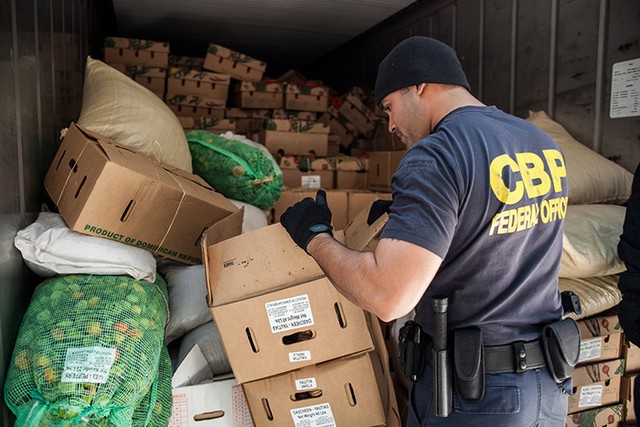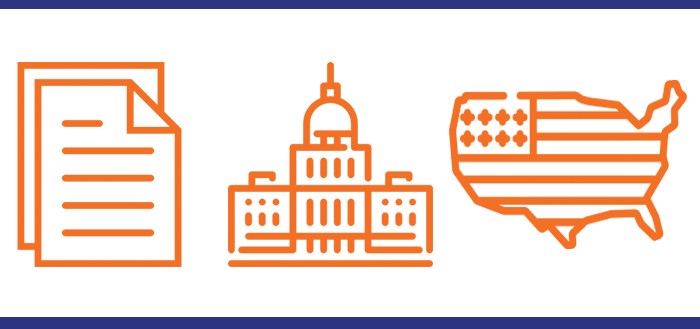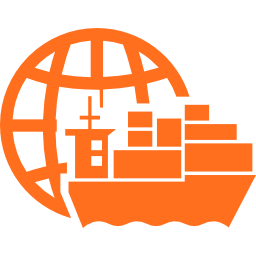Once upon a time, customs was just looking for smuggling or misvaluations in cargo. Since 9/11 though, it has been a matter of national security, and the process has become increasingly more sophisticated. Customs cargo inspectors are checking random shipments, but also using data to target shipments within specific criteria.


An Office of Field Operations Officer looks through crates and bags of fruits and vegetables that have come in on a containter ship. Image Source: July 11, 2016 – JOC
Data is collected from a variety of sources, and this data helps target which shipments the Customs and Border Protection (CBP) may choose to inspect.
Prior to shipping your cargo from the origin point, your freight forwarder, airlines and/or shipping lines all submit the shipment details through an Automated Manifest System (AMS).
For ocean shipments, your broker transmits the Importer Security Filing (ISF) at least 24 hours before departure. Up to 5 days before arrival, your broker transmits the entry data to U.S. Customs.
Types of Customs Holds
Manifest Hold
Based on the information and data provided – Whether there are red flags or missing information. Forgot to submit submit your Import Security Filing (ISF)? Get ready for a manifest hold.
Commercial Enforcement Hold
As the general watchdog for several other agencies regulating goods entering the country, this is a hold put on a shipment by CBP for any potential issues. The agencies reviewing the paperwork and/or examining the goods could include one or more of the many agencies such as FDA, USDA, CPSC, FCC etc.
Statistics don’t lie! Market conditions, improved efficiencies or changes in the cost of materials in manufacturing may contribute to changes in declared values. Any legitimate discrepancies should have proof on what has changed.
Discrepancies in the data declared versus what the historical data shows the cargo should be in terms of value, weight etc. for a given commodity or product.
CET Exam Hold (A-TCET)
Contraband Enforcement Team a.k.a. Anti-Terrorism Contraband Enforcement Team
Looking for illegal cargo such as drugs, weapons of mass destruction, smuggling and other contraband.
PGA Hold
Any of the Participating Government Agencies (PGA) such as FDA, USDA, CPSC etc. can instruct CBP to place a hold on a shipment for them to review and/or examine.
How will I know there is a hold on my shipment and what happens next?
Customs will notify the broker and importer electronically. CBP may decide to proceed with inspecting the cargo or request more information such as missing documents or information, backup documents, commercial invoices, packing lists, certificates etc.
The hold will either be released or categorized for one or more exams depending on the concerns and agencies involved.
Up Next: Types of Customs Exams
Contact BOA Logistics for Drayage Services
BOA has a team of experts in drayage and port logistics, working to keep your freight moving. Contact us to find some opportunities to streamline your logistics!



